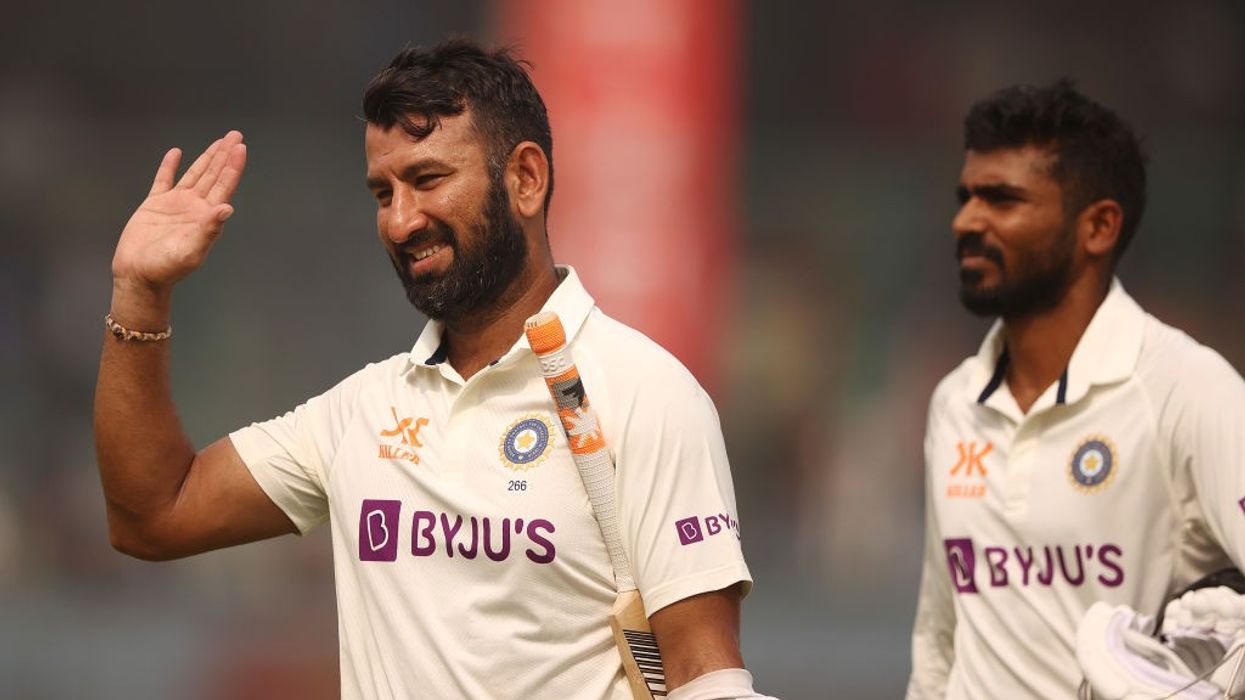INDIA spinner Ravindra Jadeja returned his career-best figures of 7-42 to lead Australia's hammering by six wickets inside three days on Sunday (19) to bring the hosts to a 2-0 Test series lead.
Jadeja, a left-arm orthodox, teamed up with fellow spinner Ravichandran Ashwin to dismiss Australia for 113 in a morning session when the tourists' batting imploded, thanks to an overused sweep shot on a tricky New Delhi pitch.
The hosts romped to their victory target of 115 in the second session to guarantee them retention of the Border-Gavaskar trophy in the four-match series.
They have won their previous three series against Australia and are now close to securing a spot in the World Test Championship final.
India lost skipper Rohit Sharma, run out after a fluent 31, and Virat Kohli, who surpassed 25,000 international runs, stumped on 20.
But Cheteshwar Pujara stood firm with 31 in his landmark 100th Test to steer the team home with a winning four as wicketkeeper-batsman Srikar Bharat, unbeaten on 23, looked on.
Nathan Lyon took two wickets to return a match-haul of seven.
Australia, who also lost the opener inside three days, crashed from their overnight 61-1 to get bowled out in 31.1 overs after losing nine wickets for 52 runs in just over 90 minutes of mayhem.
Jadeja improved on his previous Test best of 7-48 to add to his three in the first innings. Ashwin grabbed the remaining three.
Ashwin struck in the first over of the day to get Travis Head caught behind for 43, three balls after the left-hander hit a boundary to add to his overnight score.
Marnus Labuschagne attempted to take the attack to the opposition with the paddle shot and the reverse sweep but was bowled by Jadeja for 35.
David Warner's concussion substitute Matt Renshaw looked clueless against spin in his eight balls at the crease before he missed an attempted sweep, giving Ashwin another lbw.
Wickets fell like nine-pins and Nathan Lyon narrowly averted a Jadeja hat-trick but the bowler kept up the charge to wrap up the Australian innings, which started on a promising note near the end of day two.
Axar Patel set up victory with his counter-attacking 74 on Saturday (18), lifting India from a precarious 139-7 to just one short of Australia's first-innings total.
The left-hander put on a key 114-run eighth-wicket stand with Ashwin to turn the tables on Australia, who kept coming back with Lyon leading the bowling charge.
Lyon returned figures of 5-67 with his off-spin and was supported by fellow spinners Todd Murphy and debutant Matthew Kuhnemann - both of whom took two each.
The Aussies suffered an early blow ahead of day two when star opener Warner was ruled out due to concussion after getting hit on the head in his knock of 15.
The third match is in Indore from March 1.
(AFP)
Jadeja stars as India hammer Australia to take 2-0 Test series lead
India are now close to securing a spot in the World Test Championship final.




